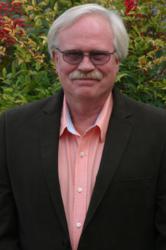By Tammi Pitzen, Executive Director of the Children’s Advocacy Center of Jackson County
Having spent nearly a quarter of a century working in the field of child protection with a focus on sexual abuse, I am somewhat baffled by this:
We as a society have always, and evidently continue to be, aligned with the offenders and against the victims.
I know. When you read it in black and white, and in very simple language, it seems so hard to believe that we do this.
Let’s examine the recent events of Dylan Farrow coming out with a strong statement regarding her sexual abuse by Woody Allen. It seems that as a society we have turned our head and said that it is okay to sexually abuse a child if you are an entertainer or if you are famous. It becomes okay to sexually abuse a child if you have money. Even with the people who support Dylan, it is support that comes in the form of “if this is true…”
Why is that? We work so hard to disprove a child’s statement. We work so hard to convince ourselves that child sexual abuse only happens in the park at night. That these heinous offenses are perpetrated by people we don’t know. That these terrible acts are only perpetrated by the dirty old man in a trench coat offering candy to a child to lure them into his white unmarked windowless utility van.
I have seen it in the courtroom while trying to provide some sense of support to a young child testifying in an open courtroom about the most intimate, terrifying, and confusing sexual events that have happened to them.
Generally when you go into a courtroom during a trial there are two sides — the prosecution and the defense. It is much like a wedding. If you are supporting the offender, you sit on the side of the courtroom behind the defendant. If you are supporting the victim, you sit behind the prosecutor’s table. It is always heartbreaking to me. I position myself in the front row behind the prosecutor’s table so the child and I can make eye contact. But in the moments before the young child walks into the courtroom to testify, I always survey the room. There are always, without exception, people sitting behind the abuser in support of his actions. Most times the other side, the side where you sit to show support for the victim, is empty — with the exception of me.
In the community where I did most of my court support, the Deputy District Attorney would always request to talk to the jury after a not guilty verdict came in. Almost without exception they would be told, when asked about the not guilty finding, that the jury believed the victim but really wanted more evidence. There are no fingerprints left. There are no witnesses. And despite what you see on TV, there is no DNA evidence left. There are many reasons why that is and that might be a subject for another blog.
The evidence is the child’s statement, and if you believe it, then why is that not enough? It is enough that the perpetrator denies his offenses. We give him/her the benefit of the doubt.
I wonder what would happen if we all said enough is enough.
What would happen if we as a society got behind our child victims and stood strong with them? Research shows that not many victims lie when it comes to their abuse and if they do lie, it usually a lie to cover up that it happened — not to fabricate that it did happen.
So where do we go from here? I ask, when you weigh in on whether Woody Allen could have done this, that you consider carefully the message you are giving to the children in your life. That is right. If Dylan Farrow were your daughter how would you feel about what the public response has been? How would you want Barbara Walters to respond? How would you feel if Diane Keaton stood up and supported your daughter’s abuser? If your granddaughter reported sexual abuse, what is the response that you would want her to receive?
Examine the facts. What financial gain is Dylan Farrow receiving? Is she getting anything out of this?
Someone has to be the first to say that it is time to support our child victims. Someone has to tell the Woody Allens of the world that sexual behavior with a child is never okay. Someone has to say that enough is enough.
At some point we can no longer close our eyes and pretend that sexual abuse happens in some other place and to someone else’s children. At some point we must realize that it is no longer enough to say that we believe the child sexual abuse victim . . . but we just need more evidence.
